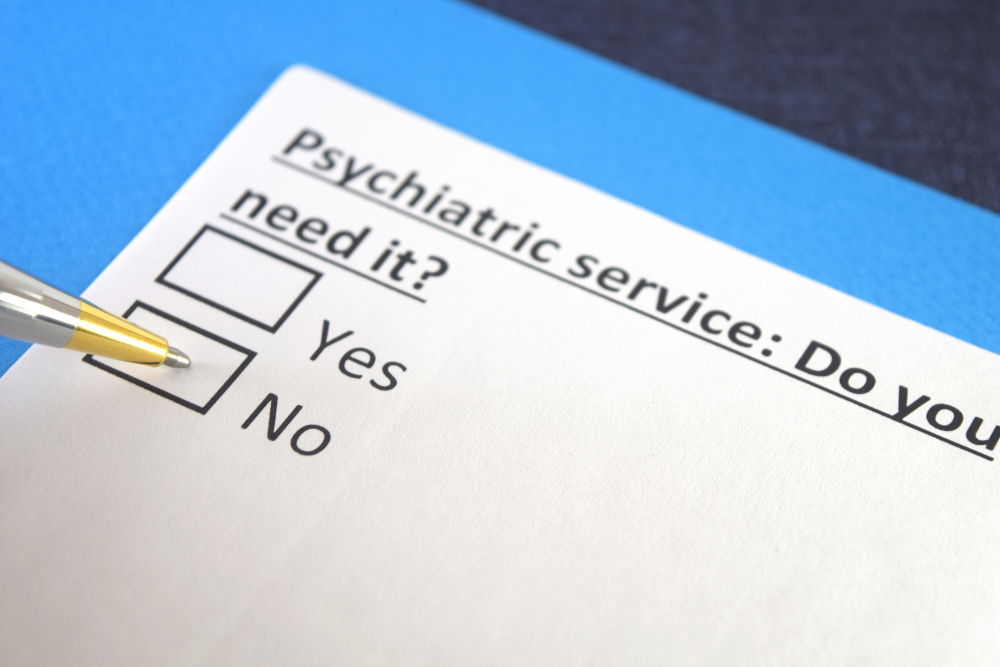Mental illness is hypernym that encompasses distinct diagnosable mental health ailments, disorders, diseases, and conditions, that involve changes in emotion, thinking and/ or behavior. There are different types of mental illness that affect the adolescent population. The Mayo Clinic explains that mental health disorders in children are “generally defined as delays or disruptions in developing age-appropriate thinking, behaviors, social skills or regulation of emotions. These problems are distressing to children and disrupt their ability to function well at home, in school or in other social situations.” Data presented from the 2020 National Survey on Drug Use and Health (NSDUH) found that an estimated 49.5% of adolescents aged 13-18 in America had AMI (any mental illness). The treatment options for a young person with a mental health disorder are wide-ranging. Depending on a child’s needs treatment plans may include psychiatric medications.
Types Of Medication
Psychiatric medications can be an effective component of treatment for psychiatric disorders of childhood and adolescence. The American Academy of Child & Adolescent Psychiatry outlines different types of medications used in children, such as:
- ADHD medications: Stimulant and non-stimulant medications may be helpful as part of the treatment for attention-deficit hyperactive disorder (ADHD). They come in several different forms, such as pills, patches, and liquid forms.
- Stimulants: Target the core symptoms of ADHD including, impulsivity, hyperactivity, and inattention.
- Non-stimulants: Treat the core symptoms of ADHD but may be less effective than stimulants. They are most used with children who have anxiety along with ADHD.
- Antidepressant medications: May be used to treat depression, school phobias, panic attacks and other anxiety disorders, bedwetting, eating disorders, obsessive-compulsive disorder, posttraumatic stress disorder (PTSD), and ADHD.
- Selective serotonin reuptake inhibitors (SSRIs): Work by slowing the re-absorption of serotonin (the neurotransmitter known to help with mood regulation and anxiety) in one’s the brain.
- Selective norepinephrine reuptake inhibitors (SNRIs): Work by reducing reabsorption of the neurotransmitter’s serotonin and norepinephrine in one’s brain.
- Anti-anxiety medications: SSRIs are used to treat anxiety in children and adolescents. There are other medications used to treat anxiety in adults but are rarely used in children and adolescents (e.g., benzodiazepines, antihistamines, and atypical antipsychotics).
- Neuroleptics: Also known as antipsychotics, are used to treat psychosis, schizophrenia, bipolar disorder, and aggression. They are also used to treat behavioral symptoms of Autism Spectrum Disorder and symptoms of Tourette Syndrome.
- Anticonvulsant medications: Are used in the treatment of bipolar disorder and aggressive behavior.
- Mood stabilizers: These medications may be helpful in treating bipolar disorder, severe mood symptoms and mood swings (manic and depressive), aggressive behavior, and impulse control disorders.
- Hypnotics: also known as sleep medications may be used for a short period to enhance sleep onset and quality of sleep.
When prescribed appropriately and taken exactly as directed, psychiatric medications can be incredibly effective in reducing unwanted symptoms and improve daily functioning of children and adolescents with psychiatric disorders.
For Information and Support
Every family in need of mental health treatment must select a program that will best suit the needs of their family. When one member of a family struggles, it impacts everyone in the family unit. To maximize the benefits of treatment we work closely with the entire family to ensure that everyone is receiving the support they need through these difficult times. Seeking help is never easy, but you are not alone! If you or someone you know needs mental health treatment, we strongly encourage you to reach out for help as quickly as possible. It is not uncommon for many mental health difficulties to impact a person’s life, long term. Pursuing support at the beginning of one’s journey can put the individual in the best position to learn how to manage themselves in a healthy way so they can go on to live happy and fulfilling lives.
OUR KNOWLEDGEABLE ADMISSIONS TEAM CAN BE REACHED 24/7 AT INFO@PACIFICRTC.COM OR CALL: 800-531-5769






